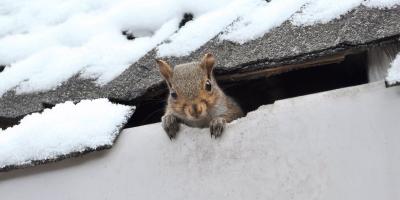Pest Forecast Summer of ‘23

The summer season of 2023 is rapidly approaching, and outdoor activities will increase exponentially for people and unfortunately bugs too. Exact predictions of pest activities are as difficult as long-term weather predictions, but they do go hand in hand. Weather has the greatest impact on pest populations and their ability to migrate and expand. Temperature and rainfall are the two biggest influencers on pest survivability and reproduction.
New England Pest Season 2023 Prediction?
The Winter of 2023 was warmer than normal with ample moisture, which should translate into greater winter survival. Unless the spring turns colder than predicted, we can expect ideal conditions for pest population expansion. Pests like ants, wasps, termites, mosquitoes, and ticks under ideal weather conditions will thrive and reach peak numbers by mid-summer. The only things that can reduce their population size once summer begins is hot, droughty weather or hiring a professional pest control operator to manage and prevent pest outbreaks.
Mosquitoes, Ticks, and the Weather:
Mosquitoes:
Mosquito populations are directly tied to warm weather and sufficient rainfall to keep them going through the summer and fall months. Without stagnant water sources created by rainfall runoff, mosquito eggs and larval forms cannot develop, and consequently, production of few biting adults. Early spring mosquito activity is driven by snow-melt and puddles (vernal pools) in our region. Once daily temperatures are warm enough, overwintering female mosquitoes will seek a bloodmeal and then lay their eggs in suitable (stagnant/high organic debris content) water sources.
Early season mosquito control treatments are critical in reducing the number of adult mosquitoes on your property. Other early, non-pesticidal measures should be undertaken including yard cleanups focused on stagnant water collection sites. Clogged gutters, tarps, boats, plant saucers etc. are habitats mosquitoes seek to lay their eggs. At JP Pest Services, our professionally trained specialists know exactly where to look and what conditions to eliminate to prevent current and future mosquito problems.
Ticks:
Moisture is a key survival element of all pests including ticks. Even when conditions are droughty, ticks can safely harbor in mulch, leaf litter, under stone property walls, and woodpiles to maintain their population levels. Adult ticks can also hunker down for a year or more while waiting for suitable conditions. Warmer weather and ample moisture, as with most pests, enables faster tick development from egg to adult stages. Because blacklegged ticks (deer ticks) are vectors of Lyme disease and other serious human diseases, all safeguards should be employed to greatly reduce or eliminate ticks from your property.
JP’s specialists are trained by staff entomologists and experienced licensed pest professionals to effectively manage tick populations on your property. We begin with a thorough inspection of the property to identify tick hot spots, then we employ the latest technology and equipment along with the best available control materials to control ticks. Mid-May to mid-July and late August through October are Lyme disease seasons. During these months, ticks are most likely to transmit Lyme disease and other pathogens to humans. For this reason, tick programs should begin in early spring to knock down overwintering stages and continue each month through October until after the second hard frost.
Ants, Wasps, and the Weather:
Carpenter Ants:
Ants, particularly carpenter ant populations, do very well after winter seasons like 2023 that caused tree and property damage from ice and high winds. Carpenter ants always seek easy ways into a structure to build their nests. Moisture damaged wood is ideal for their activities because the wood is easier to mine when creating a network of galleries. Remember, carpenter ants do not eat wood like termites, but they will attack moisture damaged wood to build their nests.
2023 Winter’s ice and high winds led to downed and broken trees on most properties. These injured and dead trees will provide ideal nesting sites for carpenter ants. Ants will forage for resources a football field or more beyond their nests and will eventually spin-off satellite colonies inside suitable areas of your home.
Odorous House and Pavement Ants:
Household ants like odorous house ants and pavement ants prefer to live outdoors, but as the summer season heats up, these ants will seek resources inside buildings and homes. Because the 2023 Winter was mild and wet, we predict these common household ants will be very active come late spring. Expect to witness mating swarms of these two ant species in April and May. These ant swarmers are often mistaken for termite swarmers, so make sure you seek a professional entomologist for an accurate identification before pursuing control program options.
Wasps:
Paper wasps and yellowjackets will emerge from their overwintering sites early in the spring. This mild winter was very favorable for survival of large numbers of gravid female wasps. Gravid means that these stinging pests are ready to lay fertilized eggs as soon as the outdoor conditions are right for egg hatch and larval development.
Once yellowjacket and paper wasp queens emerge from their winter hiding spots, they will seek protected sites to build their nests. The first brood of young will help the queen wasp expand the nest as workers. Successful yellowjacket or hornet nests can easily expand to a couple hundred insects or several thousand by summer’s end. Paper wasp nests are much smaller, numbering one or two dozen.
DIYs should avoid treating stinging insect nests because of the potential health issues associated with stings, not to mention the injuries related to trips and falls when people flee attacking bees, wasps, and hornets. At JP, our trained professionals know where to inspect, know how to safely treat and remove nests, and have the right materials, equipment, and bee suits to do the job correctly and safely.
As summer approaches, let JP Pest Services help you manage and prevent the pests that are dangerous to your health and harmful to your property. Contact us today to schedule an inspection or request a quote.



